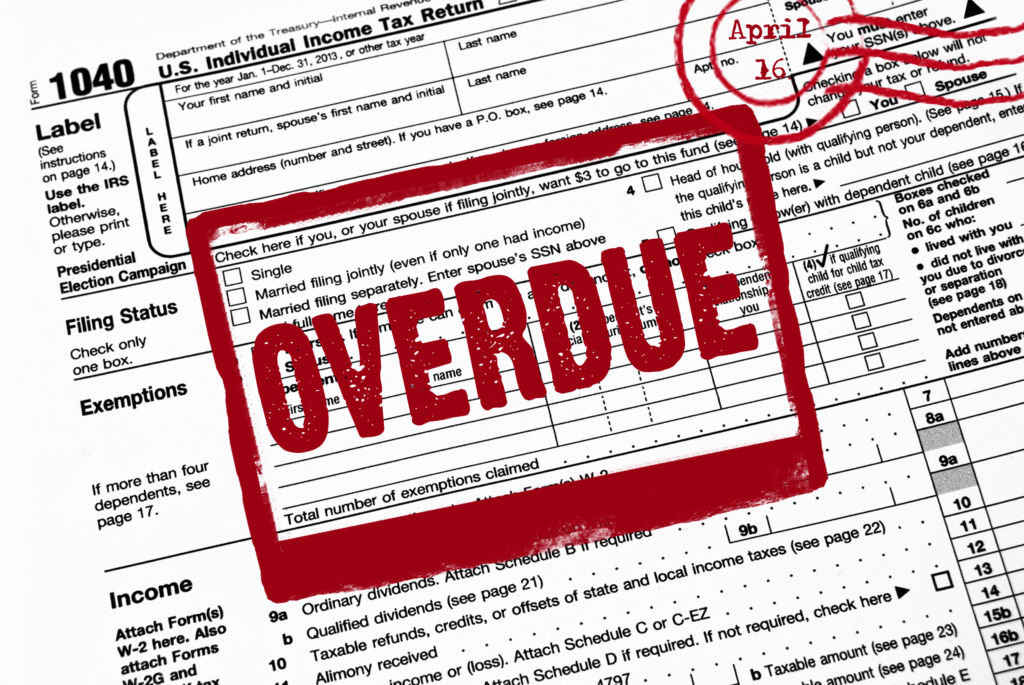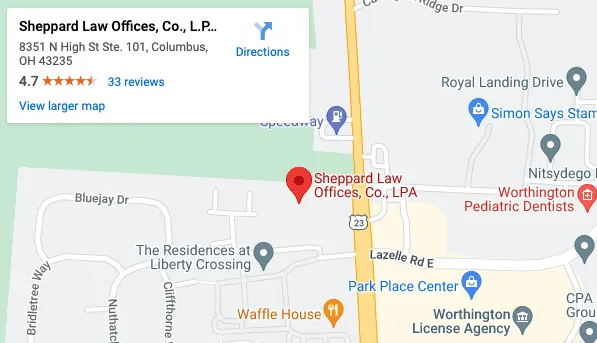IRS Tax Penalties and Interest

Tax season is stressful for everyone. From determining deductions to filing the proper forms, it can be an extremely challenging time. Unfortunately, millions of taxpayers are penalized every year for a variety of reasons, from failure to submit a tax return, to incorrectly estimating income. When you face steep penalties and interest from the IRS, it’s critical that you speak with the tax attorneys at Sheppard Law Offices as soon as possible to avoid further fees.
At Sheppard Law Offices, our Columbus tax attorneys work with you to understand the penalties you’re facing and reduce them.
When Does the IRS Charge Penalties?
Tax troubles are extremely common and affect millions of Americans every year. When the IRS discovers an issue with your taxes, they may charge penalties depending on the situation. The most common penalties are as follows:
- Failure to File
- Failure to Pay
- Failure to Pay Proper Estimated Tax
- Dishonored Cheque
Late Filing and Late Paying Penalties
April 15th is the usual deadline to get your taxes together, completed and sent to the IRS. If you file late, but, are owed money from your return there is then no penalty for filing late. However, if you owe the IRS and filed late there is a penalty and you will owe the penalty and interest on your return. If you are facing penalties for a late filing, the Columbus Tax Attorneys at Sheppard Law Offices can help.
There are eight items to consider should you file a late return:
- Two penalties can be applied – “Failure to File” and “Failure to Pay Penalty”
- Penalty for filing late – This penalty is usually 5% of your unpaid taxes, which will be applied monthly. This amount will not exceed 25%
- Minimum late filing penalty – If you are late by 60 days the minimum penalty is $135 or 100% of the unpaid taxes.
- Penalty for delinquent payment – usually a 0.5% per month, not exceeding 25%
- Combined penalty per month – If you owe both “Failure to File” and “Failure to Pay Penalty” the maximum amount per month won’t exceed 5%
- File even if you can’t pay – The failure to file penalty is typically about 10 times more than failure to pay. Even if you can’t pay in full, it is still the course of action to file and call the IRS to agree on a payment plan.
- Delinquent payment penalty may not apply – If you contact the IRS and request an extension to file and pay 90% of taxes owed there is a possibility that you won’t receive a penalty for failure to pay. You will however, need to pay the remailing 10% by the extended date.
- No penalty if reasonable cause – If you prove to the IRS that you have a reasonable case for not filing or paying on time there is a program that give you penalty relief.
To better assist you with dealing with the IRS and working with them to avoid penalty’s and interest, call Sheppard Law Offices today and we can speak to the IRS in your behalf.

SETTLE YOUR DEBT AND TAX PROBLEMS Today!
Contact Us Now!
TAX
IRS penalties and interest calculator
To calculate the interest and penalties on your income tax for the IRS, it would be a complicated mathematical equation to get the proper amount that is owed. For a quicker method there are online calculators for the following:
- IRS Penalty Calculator
- IRS Interest Calculator
- Estimated Tax Penalty Calculator
- Deposit Penalty Calculator
- Tax Estimator
Use these calculators to calculate what you would be charged by the IRS if you don’t pay your taxes.
What is the IRS Interest formula?
The following is the formula to calculate the Interest amount that would have to pay for unpaid taxes:
- Interest Amount = Amount Owed * Factor,
- Interest Amount = Amount Owed * ((1 + Daily Rate) days – 1),
- Interest Amount = Amount Owed * (1 + Daily Rate) days – Amount Owed
What is the IRS Failure to Pay Penalty?
The failure to pay penalty can range between 0.25% and 1% each month that a taxpayer doesn’t pay their taxes. The maximum payment for this penalty is 25% of your balance, once the amount owed reaches this percentage the penalty won’t accumulate any more interest.
The most common FTP penalty is 0.5% per month. If you are then issued a levy and you don’t respond in the timeframe given this penalty will then increase to 1% each month. However, a Columbus tax attorney can help you deal with a levy and possibly reduce the penalty.
What is the IRS Failure to File Penalty?
How can I get a Failure to Pay or Late Payment Penalty Removed?
What if I’m Unable to Pay the IRS in Full?
If you’re unable to pay the full balance of your taxes, there are multiple solutions you can consider. The best way to get the best solution for your situation is by calling a professional Columbus tax attorney who can look at your situation and find the best route to go to get the best settlement or payment plan for you. These options include an Offer in Compromise, Tax Appeals, Resolving Back Taxes, and more.
What are the Interest Charges?
In the 90s the interest charges were higher then they are currently. It is now about half the percent that it was in the 90s. Below is a chart showing the interest percentage year over year:
- Jan. 1, 1992–Mar. 31, 1992=8%
- Apr. 1, 1992–Sep. 30, 1992=7%
- Oct. 1, 1992–Jun. 30, 1994=6%
- Jul. 1, 1994–Sep. 30, 1994=7%
- Oct. 1, 1994–Mar. 30, 1995=8%
- Apr. 1, 1995–Jun. 30, 1995=9%
- Jul. 1, 1995–Jun. 30, 1996=8%
- Jul. 1, 1996–Mar. 31, 1998=8%
- Apr. 1, 1998–Mar. 31, 1999=7%
- Apr. 1, 1999–Dec. 31, 1999=8%
- Jan. 1, 2000–Mar. 31, 2000=8%
- Apr. 1, 2000–Mar. 31, 2001=9%
- Apr. 1, 2001–Jun. 30, 2001=8%
- Jul. 1, 2001–Dec. 31, 2001=7%
- Jan. 1, 2002–Dec. 31, 2002=6%
- Jan. 1, 2003–Sep. 30, 2003=5%
- Oct. 1, 2003–Mar. 31, 2004=4%
- Apr. 1, 2004–Jun. 30, 2004=5%
- Jul. 1, 2004–Sep. 30, 2004=4%
- Oct. 1, 2005–Mar. 30, 2005=5%
- Apr. 1, 2005–Sep. 30, 2005=6%
- Oct. 1, 2005—Jun. 30, 2006=7%
- July 1, 2006—Dec. 31, 2007=8%
- Jan. 1, 2008—Mar. 31, 2008=7%
- Apr. 1, 2008—Jun. 30, 2008=6%
- July 1, 2008—Sep. 30, 2008=5%
- Oct. 1, 2008—Dec. 31, 2008=6%
- Jan. 1, 2009—Mar. 31, 2009=5%
- Apr. 1, 2009–Dec. 31, 2010=4%
- Jan. 1, 2011—Mar. 31, 2016=3%
- Apr. 1, 2016—Jan. 31, 2017=3.7%
- Feb. 1, 2017—Current=4.04%
Need help with Tax Penalties & Interest?
Call Sheppard Law Offices today to help you with any tax penalties or interest questions or concerns. Here at Sheppard Law Offices, we can speak to the IRS on your behalf to work out a settlement that is within your monthly budget.





